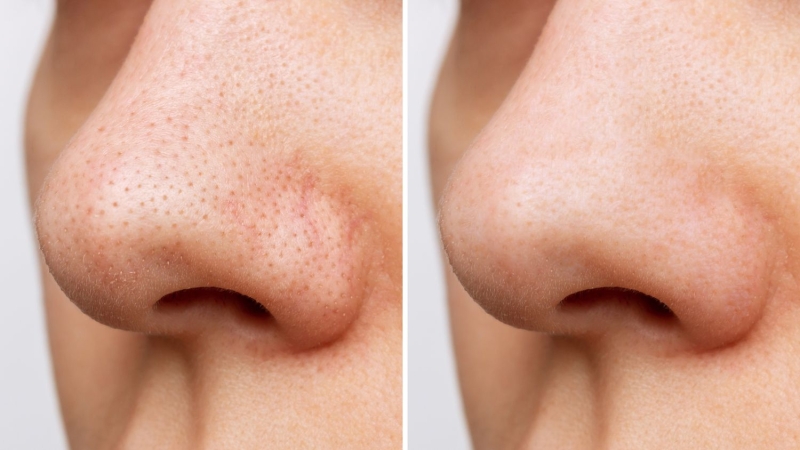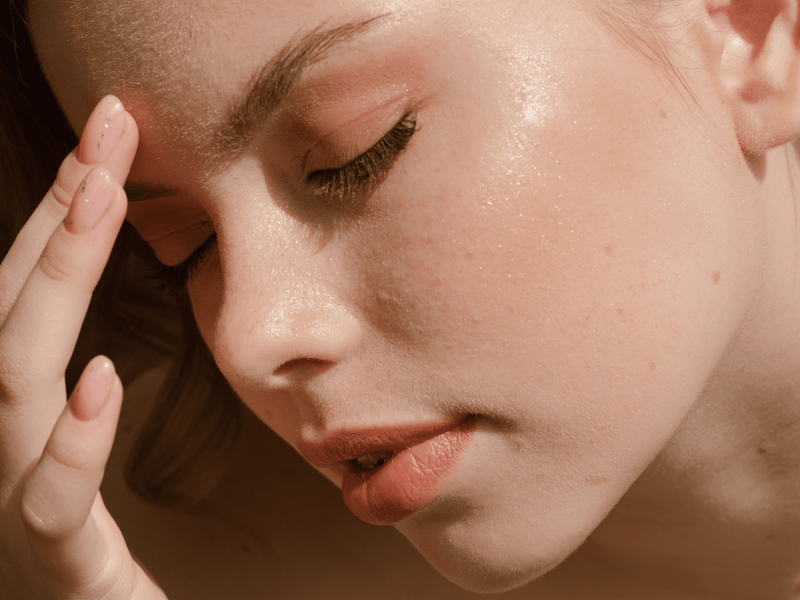Contents
It’s never fun to experience a breakout. That said, some types of acne are more imperceptible than others. While whiteheads are more evident, blackheads are often only visible from up close. Still, they can do a number on a person’s self-confidence and can trigger the desire to get hands-on with the removal process. But remember: Picking at your face is never the right choice.
As the name suggests, blackheads are clogged pores that look visibly darkened, appearing gray or black. “Blackheads occur when there is too much oil in the pore,” says board-certified dermatologist Dr. Richard Bottiglione, who has been in practice for 50 years and is the founder of Dermatologist’s Choice Skincare. “When the air hits the oil, it turns black.
FYI: Blackheads and whiteheads are virtually the same thing, one is just oxidized. “Whiteheads happen when the pore has too much oil and the skin closes over it slightly, preventing oxidation and thus keeping it from turning black,” Bottiglione reveals.
We chatted with a handful of dermatologists to determine the best way to get rid of blackheads. Here's what they had to say.
How to Prevent Blackheads
Since blackheads are the result of excess oil in the pores, thorough cleansing is the key to prevention. “Diligent daily skin care can help treat and prevent blackheads and other types of acne,” says Dallas-based Westlake Dermatology board-certified dermatologist Dr. Kelly Aschenbeck. “Washing your face twice daily will help remove excess oil, bacteria, and other debris that can clog pores and contribute to acne.”
It’s also important to be mindful of your skin-care products. As much as you might love the idea of the trendy slugging technique, board-certified dermatologist Amy Freeman says to skip it. “Occlusive products can trap moisture onto the skin and lead to clogged pores, especially with oily skin types,” she explains.
How to Remove Blackheads
As with any acne, all of the dermatologists we spoke with advise against trying to physically remove blackheads at home. “You should never try to squeeze blackheads because doing so may push the blackhead deeper, cause scarring, or even cause infection by introducing bacteria with your hand,” Freeman warns. Instead, she recommends using targeted skincare to dissolve the build-up and make way for clear skin. (More on those in a bit.)
Home Remedies for Blackheads
If you’ve been on TikTok lately, you’ve likely seen all the DIY blackhead hacks swarming your FYP. While many praise certain single-ingredient methods, such as scrambled egg whites or baking soda mixed with water, dermatologists advise against these strategies.
“I do not recommend at-home remedies,” says NYC-based board-certified dermatologist Dr. Jody Levine. “I have seen many people cause burns on their skin, [as well as] various rashes from at-home remedies. [Instead,] I recommend sticking to drugstore products.”

OTC Solutions for Blackheads
Pore strips, clarifying pore serums, clay masks, acne serums, exfoliating peel pads, benzoyl peroxide products, and pore extractors are all popular store-bought solutions for the treatment of blackheads. When shopping for OTC products, Levine says to prioritize those formulated with salicylic and glycolic acids, both of which work to unclog the pores.
Freeman says that retinol is another worthwhile inclusion for folks with blackheads. “Retinols and retinoids can help treat blackheads by reducing the stickiness of the cells that clog pores, and increase the rate of cell turnover,” she explains. “The key is to find the right retinol for your skin.” If you have more reactive skin, she says to stick to retinol; if you have normal skin that’s super oily or stubborn, she suggests retinoids. “Retinoids are stronger than retinols,” she points out. “The key is to start slow, using it one to two times a week at night, and then work your way up to nightly if possible.” For best results, she says to follow with an emollient.
If you have sensitive acne-prone skin, Freeman suggests also adding hyaluronic acid, ceramides, and niacinamide into your skin-care routine for their hydrating and calming effects.
Professional Treatments for Blackheads
There are many, many OTC blackhead treatments to choose from, but sometimes they just don’t work for certain skin types. While OTC products are always the best first defense against blackheads, sometimes, in-office professional blackhead treatment is necessary.
“The most effective way to remove blackheads is through an in-office treatment like a DermaSweep, Hydrafacial, or chemical peels, which release dead skin (which clogs pores) and leave skin renewed without irritation,” says board-certified dermatologist Dr. Jeannette Graf, an assistant clinical professor of dermatology at Mount Sinai School of Medicine.
When you go in-office, your dermatologist will be able to address your complexion concerns and offer the best approach for removal. In some cases, that can include manual extractions. The difference is, they’re trained to physically remove acne with care. “Some dermatologists may also manually extract blackheads using an extraction tool to ensure all buildup has been removed,” Graf admits. Then, for longer treatment and relief, a prescription-strength retinoid cream (like Accutane) may be prescribed.
The way Bottiglione sees it, Accutane is most beneficial for blackheads. “The most effective way to get rid of blackheads is to take prescription Accutane, which stops the production of all oil,” he explains. “However, you need a prescription and regular blood tests for Accutane. Otherwise, you must manage the oil production by using appropriate skin-care products.”
